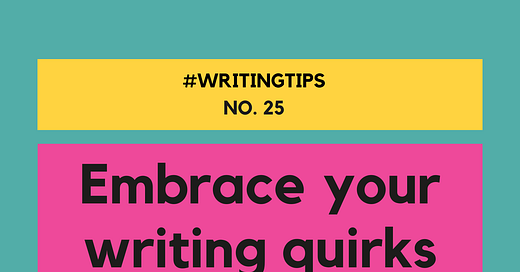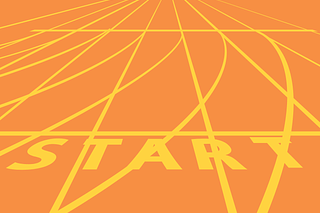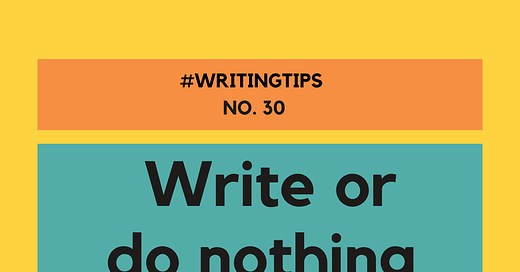
Tip 25: Embrace your writing quirks
What keep writers writing? From shame to pleasure, here's a few quirky writing tips - share your favourite weird way to write.
Hey hey!
Today we’re embracing the weird and wonderful ways that writers write. These tactics might be personal, unconventional and downright freaky, but they work.
If you thought Schiller’s drawer full of rotten apples was strange, have you heard about the ancient Greek statesman and orator Demosthenes who would shave half of his head? He decided that the shame of looking so foolish would keep him in his study to work.1
That reminds me of the story of Victor Hugo asking his valet to take away his clothes. Unable to leave the house naked, he would be forced to write.2
Some of us prefer the stick to the carrot, but while shame might be a motivator to write, I’d rather opt for pleasure.
Sticky endings
Crime writer Patricia Highsmith might have punished her characters with sticky ends, but when it came to writing she preferred comfort. Working from her bed, she would surround herself with cigarettes, coffee, a doughnut and a saucer of sugar to keep her going. Perhaps a sticky ending after all. 3
Coffee, alcohol and drugs have featured in many writers’ routines, but when Agatha Christie was in need of inspiration she took to the far healthier approach of eating apples in the bath.4
Celebrating quirks
My shelves are packed full of research, memoirs, biographies, compilations and celebrations of the ways in which writers find ways to start writing and keep going.
What are your favourite stories? Have you read a tip from a writer and tried it yourself? Was it weird? Did it work?
What about the personal quirks you’ve developed - let me know. I’m cheering on simple tips and pleasures too - is a hot cup of a tea and a pomodoro timer all you need?
Add a comment below. I’m curious to find out what supports you.
No judgement - I fully endorse all the ways you keep writing,
Bec ❤️
Plutarch wrote that Demosthenes “built a subterranean study, which, in fact, was preserved in our time, and into this he would descend every day without exception in order to form his action and cultivate his voice, and he would often remain there even for two or three months together, shaving one side of his head in order that shame might keep him from going abroad even though he greatly wished to do so.” The Parallel Lives by Plutarch published in Vol. VII, of the Loeb Classical Library edition, 1919.
Hugo’s writing procrastination is legendary, though sources for his naked writing are debatable. This post on Skeptics Stack Exchange explores the evidence.
Biographer Andrew Wilson wrote of Patricia Highsmith: “Her favourite technique to ease herself into the right frame of mind for work was to sit on her bed surrounded by cigarettes, ashtray, matches, a mug of coffee, a doughnut and an accompanying saucer of sugar. She had to avoid any sense of discipline and make the act of writing as pleasurable as possible.” Source, Daily Rituals: How Artists Work by Mason Currey.
“Christie said that she did her best thinking while lying in the bath, eating apples and drinking cups of tea. She claimed that modern baths weren’t made with authors in mind as they were too slippery, with no nice wooden ledge to rest pencils and paper on.” If you are after other Christie facts, check out The Agatha Christie Miscellany by Cathy Cook.




















My own writing habits are sadly very vanilla. An early alarm, a cup of coffee and a tidy desk. How boring!
Perhaps I'm a writing voyeur - making up for my lack of quirks by spying on others.
My equivalent to writing naked is choosing to write naked in public by deciding to serialise my memoir about boarding school on Substack. Instead of waiting for endorsement from an agent or publisher. Seriously! This isn’t just self-promotion. It’s been like hiring myself for a job. Now I’m enjoying doing the job to the best of my ability.